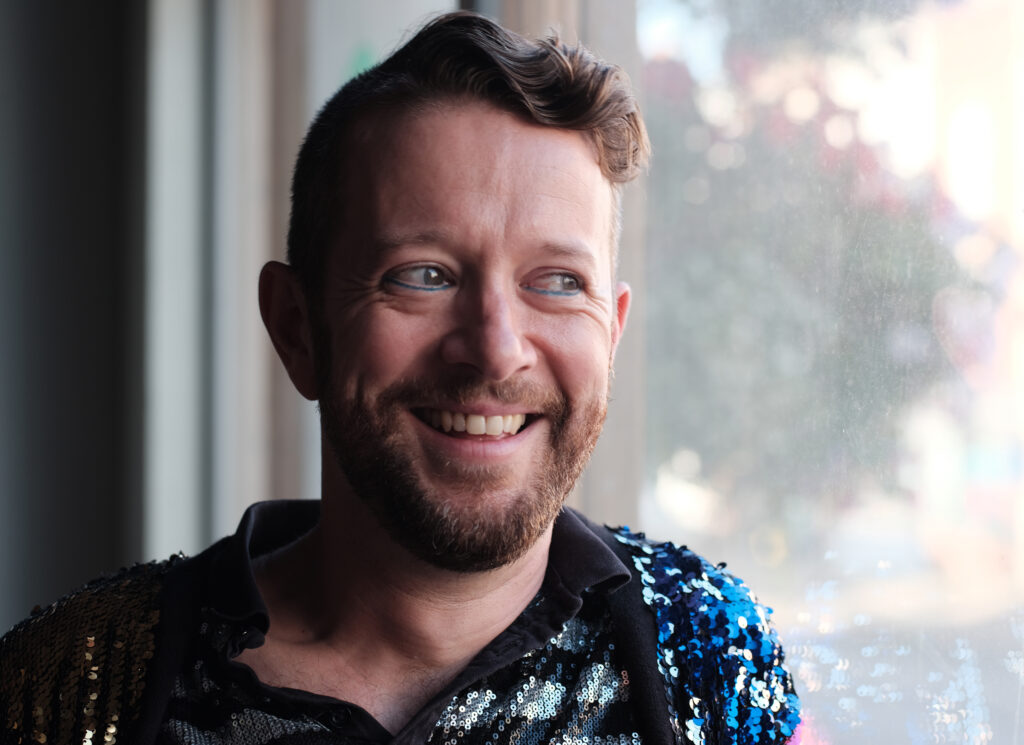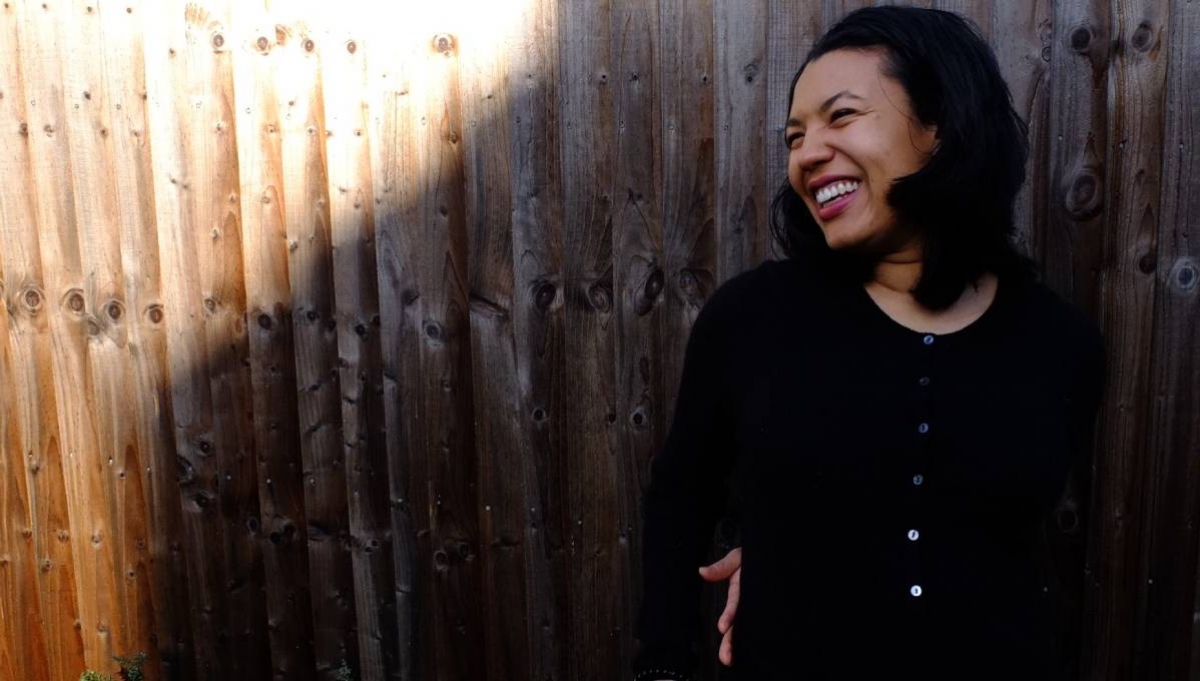As Lyra Festival announces the inaugural Bristol Young City Poet scheme and begins its search for the city’s first ever appointee, we catch up with former Bristol City Poet Caleb Parkin, who will be delivering workshops to help the young people of Bristol find their voices…
Lyra Festival has officially launched the inaugural Bristol Young City Poet scheme, thanks to Bristol City Council’s Originators Fund and with support from Bristol Ideas, who manage the existing Bristol City Poet project. The scheme involves workshops available to secondary schools and community groups and organisations based in Bristol, aimed at young people aged 14-17 (school years 10-12).
The workshops will be delivered by professional poets Deanna Rodger and Caleb Parkin (Bristol City Poet 2020-2022), and will culminate in one individual being appointed as Bristol’s first ever Young City Poet. The position will last from April 2023 – April 2024.
The workshops will engage young people with self-expression, public speaking and self-empowerment through the medium of spoken word and poetry, inviting participants to write about what Bristol means to them – its people, its places, its history. The project is also connected to the Bristol 650 celebrations next year marking the 650th anniversary of Bristol becoming an independent county (and city).
The City Poet, as with poet laureates in general, traditionally become the city’s conscience and reflects on relevant issues. Similarly, the Young City Poet will act as a voice for young people across the city, writing poems and performing at public events. As the scheme gets underway, we speak to Caleb Parkin, who was the third Bristol City Poet from 2020 – 2022, to find out more…
How does it feel to be a part of the inaugural Bristol Young City Poet scheme, especially as it coincides with the 650th anniversary of Bristol becoming an independent county?
It’s a delight to be involved in this project: young people aren’t listened to enough and I think poetry (obviously) is one of the best ways to really hear young people’s voices.
Being City Poet was a real joy for me – even through this difficult (understatement) couple of years, on a local and national level. I love this city, whatever this ‘Bristol is’, which I – like so many – have made home. So writing poems to try and reflect, respond to and document some of what has been going on has been a challenge, but a delicious one.
And I think that there’s a young poet out there who’ll really rise to the challenge of responding to the year they’ll be Young City Poet – coinciding with Kat Lyon’s (the new City Poet) time in post too. It’ll be wonderful to see how they frame the stories of Bristol through poems, the many different refracted possibilities contained in our city’s name.
I’m excited for us to go and work with the schools involved, find that person, but to have a great, nourishing, enjoyable time with everyone in the process.

Why is the scheme so important for Bristol and what do you hope it will do for the city and its young people?
I’ve worked with and continue to work with young people regularly, and feel they’re not given sufficient credit as younger adults. Just looking at, say, the Youth Climate Strikes.
During the pandemic, young people went through a huge amount – being cut off and having to study on-screen only, stuck at home, at a time when young people often want to be sociable, exploring and discovering who they are. Just from experience with my niblings (gender-neutral niece and nephew term!) who are mostly in their teens, they’ve done amazingly well through these circumstances. But not everyone has been so fortunate. And I don’t think enough resources are being put into supporting young people now, to recover from such a traumatic couple of years. It’s just about continuing the examination machine, that they should simply ‘catch up’ as though nothing has happened.
As such, now is an especially good time to really listen to young people. And I think having a Young City Poet will allow some of this to be articulated, by a young person who takes real creative care over how they approach it. That’ll be what I’m looking for, too: someone who has passion to communicate and a wish to keep learning about the ways poetry can do that. It could be a great opportunity for that young person, but also for them to inspire others to get writing, sharing their worldview and life experiences through poetry, and to be heard that way.
Tell us about the workshops that will be available to secondary schools, community groups and organisations based in Bristol…
While we are looking for one Young City Poet at the end of the process, we really wanted the whole process to feel enjoyable, sociable and collaborative.
Deanna is a great workshop leader, so we had fun bringing together our ideas for the session. How could we get each group excited by the potential of writing poems for and about their Bristol? How can we make sure everyone gets a moment to shine, but also work together?
They’ll be really playful sessions, where young people can explore the texture of their area of the city, their unique experiences of living in Bristol more widely, and then bring them together into something to share. I guess I’m especially looking forward to hearing when young people feel really confident speaking in their own voices – with all their quirks, questions and quibbles – rather than any idea of what a ‘poem’ voice should be like. It’s always such a joy when you hear a young writer trust that what they have to say, in the way they want to say it, matters. I’m looking forward to those moments.
Tell us about how the first ever Young City Poet will be chosen and what qualities/skills you will be looking for…
We want this to be an enjoyable process for everyone, throughout, before we then decide on one Young City Poet. After the initial workshops in various settings, we’ll see who were stand outs in terms of their writing, performance, and approach. We will have follow-up session with all these young poets, which will also be fun and collaborative too.
After which, we’ll select a Young City Poet based on: the quality of their writing; the standard of their performance or presentation (being Young City Poet will mean speaking in front of audiences!); their awareness and engagement, as demonstrated through the themes and language in their poems; their collaboration and interaction with others in the group.
As I mentioned earlier, sometimes a young person has a real gift for speaking just as they are, but elevating it into poetry. It’s something I’ve witnessed a lot through schools residency and something I’ll certainly look out for too, that genuine confidence and sparkle.
What did you enjoy the most about being the third Bristol City Poet and what do you hope the first ever Young City Poet will take away from the experience?
During my time as City Poet, I really wanted to show ways that poetry can be collaborative and collective. A number of my commissions were written in collaboration: with another poet (Tom Sastry and Miranda Lynn Barnes) when I knew they’d bring something brilliant to the commission; with community groups (Christ the King Primary School, Bristol Refugee Rights, my neighbours during a street party!). I also wrote a few poems which invited contributions on a theme (such as ‘Bristol Queen’ or ‘The Things They Get Away With in Public’) by talking to people or asking them to send me responses, and then wove these through a poem, largely comprised of those responses, with ‘me’ weaving them together.
I hope that a Young City Poet can start to experiment with some of this, with what a ‘public poem’ – written with the city, or part of it, or a particular community, in mind – might be able to do. It’ll need to be someone who’s genuinely curious about poetry, language (perhaps with an emerging obsession!) and their potential, about people, and about our connections to one another. These, I think, are such vital qualities in being a ‘public writer’ such as Young City Poet.
In your opinion, how does poetry have a power to inspire change and reflect the city’s conscience like no other artform?
The short answer is that I think of poetry as one of many artforms and that I’m really interested in the ways it intersects with visual art, music, sculpture, but also with the sciences and other disciplines too. Interdisciplinary work is where it’s at for me and poetry can ‘plug into’ so many other fields in the world – and the world is endlessly fascinating to me. Us poets are, I think, insatiably nosy (OK, curious).
While I think poetry has its own special tools and devices – the way it can shortcut directly into human experience, the spooky word-magic of metaphor, the uniqueness of language as a medium – I don’t think it’s better or worse than other artforms. I would be lost without music, art, film, TV, dance and dancing. I love them all. It’s just that I’m a poet – I can’t help it! I’ve tried not being a poet! – and poetry is the way I think about the world and the way I find a route through life in all its turbulence and trials.
For more information about the Bristol Young City Poet scheme, visit: lyrafest.com/about/young-city-poet
Abo Deanna Rodger is a former UK Poetry Slam Champion who has recently written and performed commissioned pieces for BBC1’s Sports Personality of the Year, Black History Matters for BBC Sport 2020 and If which was read by Serena Williams for International Women’s Day 2021



